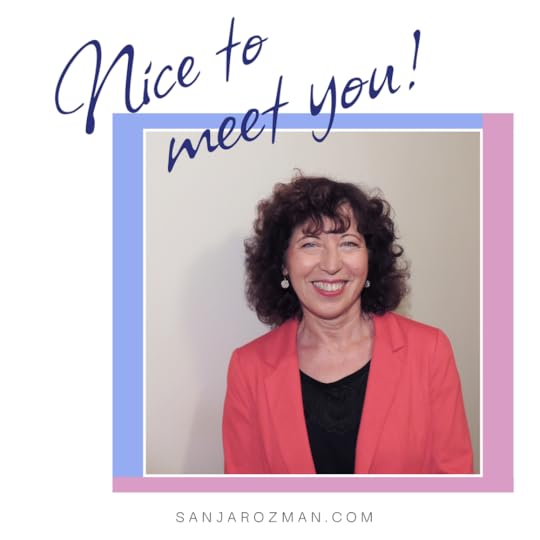Why does falling in love go wrong?
The quote from Jackie Collins’ romantic novel excellently summarizes what we’ve been taught about falling in love from the songs, books and movies. We’ve learned to believe that falling in love is like being struck by lightning or hit by some angel’s arrow. In a moment, everything we’ve cherished so far fades in the face of the passion so intense it instantly takes over our lives. The promises we had made, the moral values we cherished, the course of life we had imagined, is all gone and replaced with a glorious vision of someone who we may see for the first time, and yet it feels that we can never again live without.
We were also led to believe that falling in love is the only right way to find true love. We even feel sorry for those who get bound in arranged marriages, for they have denied themselves the possibility to wait for that magic spark and find their soul mates. To follow that dream, some people leave their children and families, unable to image life without the one and only magic person they finally met.
But is falling in love actually a guarantee for a life-long committed relationship we all long for? Then why do so many people who had started their relationship with mutual passion, divorce or even hate each other years later? Did they choose the wrong person or gave up too quickly, when something could still be saved. And why do some other folks who chose their partners without falling in love, live harmoniously decades later? Is falling in love really necessary for a life-long successful marriage?
To understand falling in love, you have to learn about projection. It is a phenomenon that we can never see other people or situations objectively, such as they really are, but rather tend to see in them a memory from our past or a piece of our soul. In truth, you cannot know who the people you’ve just met truly are, but you can still think you do, because you are flushed with intensive feelings. This person does not generate your feelings, but acts rather as a trigger to a memory you have inside. This can be either positive or negative, and we can feel repulsed or attracted to some people and situations at the first glance. (see How do I stop emotional overreacting?)
Psychoanalyst Dr. Carl G Jung explains in his book Man and His Symbols, 1968, that people construct in their psyches an archetypal psychological structure. Every woman has an animus as the unconscious masculine side her, and the anima is the unconscious feminine side of a man. These act as vision of a perfect mate, but they have more to do with one’s relationship with the parents, especially of the opposite sex. This kind of projection is called transference. It first appears in the psyche when we are very young, in pre-school. Most people first fall in love in kindergarten and their feelings are discounted as puppy love, but it’s the first projection of a deep psychological structure.
So, it seems that falling in love is a transference, a projection of all the desired features to somebody we might just met for the first time. We feel as if we have known him or her for all our lives. We know their every thought. We believe that there is only one such person in the entire world and that we would forever regret should we miss the opportunity to be with them. The emotions are strong, which is a sign that some very ancient, childhood memories are awoke.

Photo by Tyler Nix on Unsplash
If you ask marriage consultants, they’ll probably say love is hard work. Only nobody reveals exactly what kind of work is involved. In my clinical experience as a psychotherapist for all kinds of behavioral addictions, especially relationship addictions ( see also Inside the love addict's brain and What’s love got to do with addiction), a lot of people get it totally wrong. They feel they must sacrifice their wants, desires, passions, even personal truths, to accommodate their partners. Mostly women sometimes feel that they must sacrifice their personal professional success to not interfere with their family obligations. You can choose to do that, but this is not the work needed to make the relationship work. The true work involves the courage to risk intimacy.
Intimacy comes from knowing somebody and letting oneself be known in a manner that creates a connection and safety. But being known also means that you risk vulnerability because you may be rejected and abandoned. Instead of showing their authentic self, expressing expectations and emotions, and risking rejection, some people resort to the roles of a perfect mother, wife, daughter, employee, etc. With infallible sensors, they detect the partner’s fantasies of an ideal mate and play that role impeccably. But every time they hold back the truth in a relationship, they lose a part of themselves, and sooner or later, they are nothing more than two strangers, standing opposite each other, perfectly adjusted in complementary roles, but incapable of feeling close.
Overnight, one or the other could be replaced by a new partner, but the balance of the relationship would not change. The illusion that it is possible to have close relationships without risk and vulnerability is like a dangerous offshore reef, onto which the initial mutual attraction of partners can get shipwrecked, then break apart into pieces. Yet, they might still choose not to end it, stay together, and quietly suffer in their empty and formal relationship “because of the kids.”
“People think a soul mate is your perfect fit, and that’s what everyone wants. But a true soul mate is a mirror, the person who shows you everything that is holding you back, the person who brings you to your own attention so you can change your life.”
It is not just a phrase that one should first learn to love themselves, and only then try to love another person. But what does this cliché mean?
It means that we should be looking for answers to the problems of adulthood and intimacy in ourselves instead of in each other. We need to develop social confidence, spirituality, independence, learn to find sources of support and appreciation! And, most of all, become brave and confident enough to let ourselves be truly seen.
Intimacy, the essence of true love, involves the courage to let yourself be truly seen by your lover!

Sanja Rozman is a medical doctor, psychotherapist and author of 8 books on behavioral addictions.
Read more in her book Serenity: How to Recognize, Understand, and Recover from Behavioral Addictions
that is about to be published by Brandylane Publishers Inc., Belle Isle Books.



